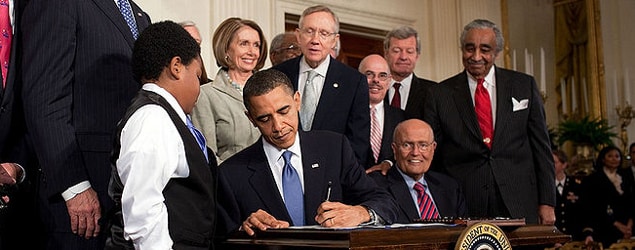Faulty ideas, not a faulty market, necessitated Obamacare

In the New York Times, Robert H. Frank, a Cornell economics professor, discusses the “market failure” he sees as necessitating Obamacare. According to Frank, “unregulated insurance markets [are] a catastrophically ineffective way” of achieving “universal” health care, which he considers the goal of health reform efforts.
But the fact that capitalism can’t achieve what proponents of Obamacare are after should not be seen as a failure of the free market—it is a positive feature.
The goal of “universal” health care is morally corrupt. It means the establishment of a system in which some people are entitled to the medical goods and services produced and paid for by others. It’s a system in which the goals, the values, the happiness—i.e., the lives—of the men who produce these vital services are considered disposable.
The free market is incompatible with the kind of health care system proponents of universal health care want. Capitalism is based on the idea that each individual has a right to pursue his own happiness. It’s a system in which, no matter your need, you’re not entitled to something that somebody else produces—not unless you earn it. That’s the proper system to have—one in which you’re free to pursue as much health care as you want and are able to pay for.
The fact that capitalism cannot achieve what proponents of Obamacare seek should be seen as an indictment, not of the free market, but of the goal motivating those individuals.
Image: “President Obama Signs Health Insurance Legislation Into Law” by Pete Souza via Wikipedia Commons









